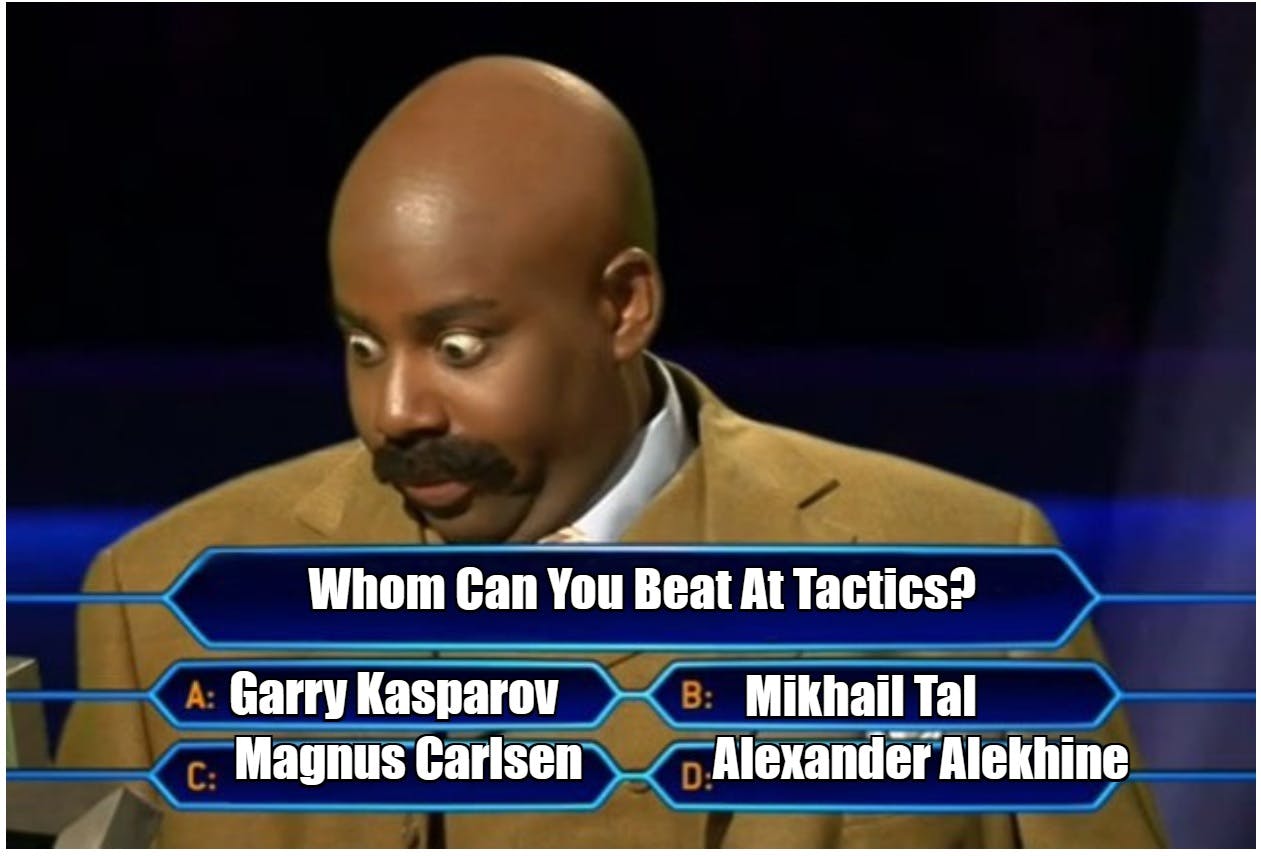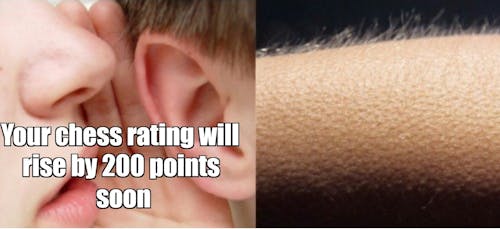Are you sure you want to delete your account?
(This will permanently delete all of your data - purchases, game scores, ratings, etc)
Change your username
Your current username is: guest
Change your account email address
Your current account email is:
Redeem your Fampay code here!
Use your Fampay code to get access to the Play Magnus Plus Membership!

Why Are We Not All Tactical Geniuses?
To many of us, tactics seem to be the most accessible and entertaining component of chess to train. Myriads of players worldwide solve exercises regularly, yet few of us become truly powerful tacticians. Why is it so?
I have been asked this question on many occasions. Moreover, I have solved over 10,000 serious tactical problems in my life, yet over the last few years, I have hardly noticed any tangible improvement in my combinational vision. When it comes to my chess friends and colleagues, the situation is quite similar. They have more or less hit a plateu at some point. When I tried to approach experts and torture them for a reason why it's so hard to break the barrier, neither of them had an answer ready. In fact, there are far more open than solved issues for me in chess, and hardly anyone can help. The more you learn about chess or anything else, the more you realize how ignorant you are on this subject.
In the book "Thinking Inside the Box", GM Jacob Aagaard mentions that while it is relatively easy to make a big jump if you smartly focus on developing your calculation abilities, the propensity for tactics seems to be more on the "either you have it, or you don't" side. From my experience, I tend to totally agree. I have always been reasonably gifted when it comes to spotting unusual tactical ideas and could give some low-tier GMs, especially those who lean towards positional play, a run for their money in this respect. Nevertheless, I am fully aware that I am nowhere near as sharp tactically as, let's say, Nepo or Firouzja. And even if I started drilling tactics all day long, I would never catch up with them since their talent is on a whole different level.
Let's speak more concretely. My Lichess puzzle record rating is over 9000...sorry, 2800, and on Chess.com, I had 3200+ back when the scores seemed to be lower on average. When I looked at the top list, I was right between two GMs rated about 2650 FIDE.
Back when Chess.com used to display the average rating of the people who tried their Puzzles tool, it used to be somewhere around 1100. The total number of attempts was a few hundred million back then. The average number of attempts was a meager 44. Clearly, most users weren't serious about their improvement or didn't enjoy the trainer, so they made a couple of tries and quit. Still, the participants' average rating was too low to stick with the hypothesis that people had hit their ceiling at a certain point.
Another idea of mine was that performance depends on several non-chess factors. For example, how fast you get tired. Whether you have the patience to diligently find that mate in 3 or not. And so on. Hence, in theory, one should make gradual progress by solving tactics daily and improving the non-chess aspects that somehow contribute to one's performance.
For instance, I realized that I play blitz better when I am caffeinated. Also, after losing weight from 105 to about 80 kgs, I felt my endurance over the board increased. Still, such factors account only for slight boosts, while your chess skills play the leading role in the overall performance.
My current working hypothesis is that successfully solving chess tactics requires some other forms of training. An analogy would be that if you want to bench-press a lot, you don't limit your training to merely bench-pressing daily. Similarly, one may have to resort to other supplementary exercises to improve one's tactics prowess. At first glance, this statement looks counterintuitive, but you never know.
Moreover, do you know what is even harder to train than tactics? The speed at which you solve tactics! Sometimes, puzzle ratings may be misleading since, in untimed mode, the results depend a lot on your persistence. Some club players can sit for half an hour or even more on one puzzle. As a result, they might obtain a rating close to the GM level, even though the GMs in question spend only 10 seconds or so per puzzle. However, when it comes to reaction speed, our brains seem to be wired differently. I have always been more of a strategy/RPG kind of gamer, enjoying the genres where high APM is not the deciding factor. Meanwhile, some of my classmates were into shooters or arcade games, which are about clicking fast and precisely. Even though I have practiced in Tactics Frenzy or Lichess Puzzle Storm/Racer, my skills of "fondling the mouse" (a brilliant expression by Vladimir Kramnik) or furiously tapping on my phone screen haven't improved much. Apparently, my chess software is running on a 36-year-old processor that doesn't seem to get more MHz as the years go by. And I am not proficient enough as a biohacker to give it a decent upgrade! As a result, when it comes to speed and solving simple puzzles, some relatively low-rated kids can leave me in the dust since I am nowhere as good as them in terms of premoving the solution moves.
Finally, you might wonder why the chess community keeps feeding you with all those mantras like "some tactics every day keeps the patzer away" if it is unclear whether such a strategy yields any long-term benefits? The answer is that it is known for a fact that if you don't work on his tactics, you will be degrading in this area. Meanwhile, if you practice it, you will likely experience rapid progress in the early stages and at least maintain the status quo after a long training period. The truth is that, as you can see from the abovementioned data, most people quit too early. That's why, from my experience, most people tend to overestimate at what rate they would improve if they started taking chess seriously. Since they have never practiced chess consistently for a few hours daily, they have all sorts of illusions of what will happen if they go all out. In fact, hard work is a must for any aspiring chess player, but it is by no means a guarantee of success. Sounds motivating, doesn't it? 😉
Don't miss your chance to learn tactics & other aspects of chess from Magnus Carlsen while he is still the World Champion!


